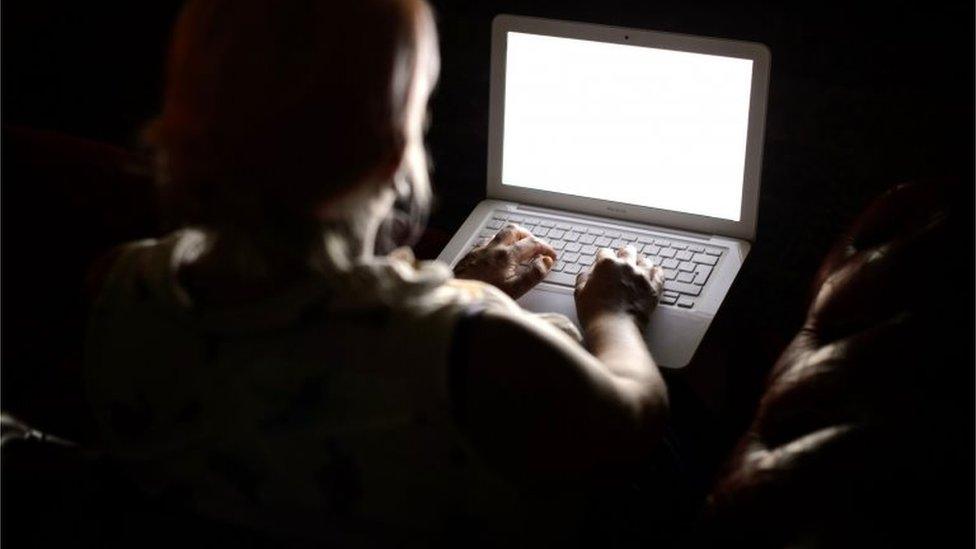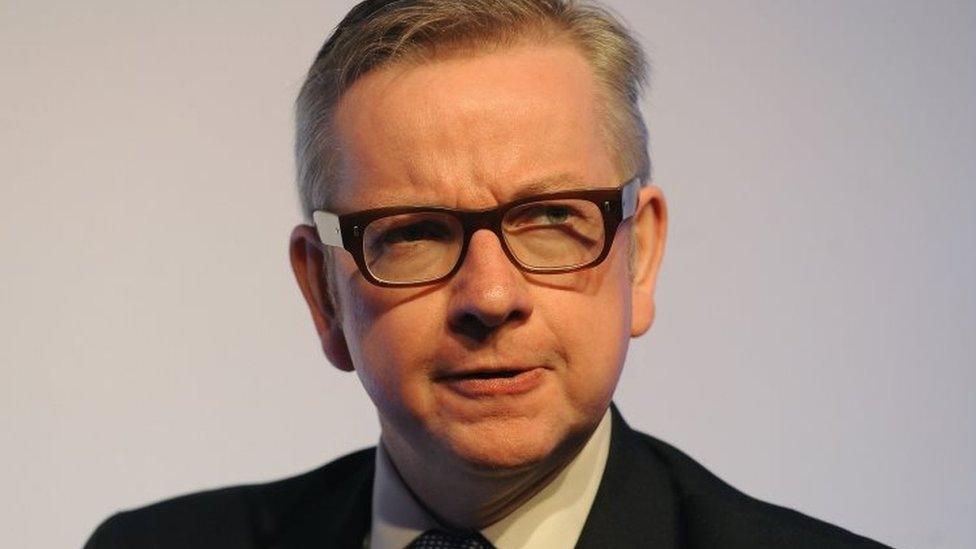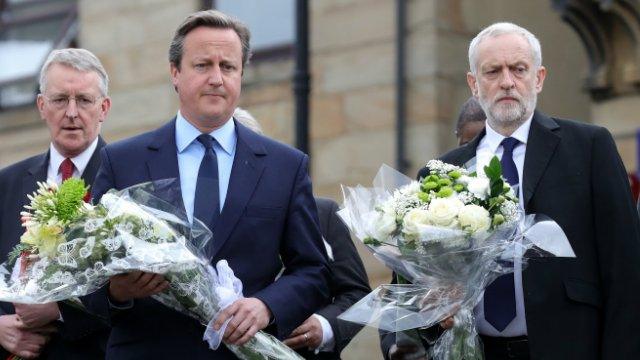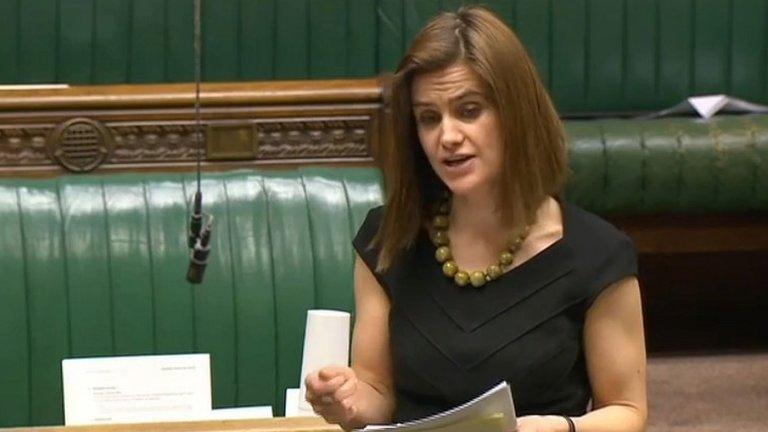Week ahead
- Published
- comments

Could this week see the last gasp of the Investigatory Powers Bill?
MPs return to work on Monday, and peers on Tuesday - and it's always interesting to note who's tanned and relaxed after a mini-break in the sun, and who's pallid and sniffling after a few extra days of constituency work.
The balance will be interesting because it will give some indication of who's eying a possible election...
Meanwhile, Parliament continues to hover in the strange legislative limbo that has opened up between the last dregs of David Cameron's premiership and the first bright new bills from Theresa May.
Floating in this uncharted void are some worthy technical measures, (Pension Schemes Bill and the Small Charitable Donations and Childcare Payments Bill), some distance from the cutting edge of political controversy; and the behemoth that is the Investigatory Powers Bill, which is both a Cameron hangover and an authentic May bill, since the PM was very much identified with the need for tougher powers to monitor criminal and terrorist use of the internet in her incarnation as home secretary.
This week could see the Lords final acquiescence to the IP Bill, after a couple of rounds of ping-pong with the Commons.
The other big parliamentary clash of the week is a bit more surprising; on Friday the Labour MP Pat Glass has a private member's bill with the ominous title, the Parliamentary Constituencies (Amendment) Bill.
As I write, a week before the second reading debate, the text has not been published. But it is already clear that is a heavily political measure, managed from the Labour Whips Office. (Anyone who suspects that forensic inspection will reveal the fingerprints of the new Chief Whip, Nick Brown, should note that the bill predates his arrival, so if there's a cunning plan here, it's a Rosie Winterton plan that he's continuing.)
Those with long memories may recall that Labour waged a very smart and ultimately effective campaign to frustrate a package of boundary changes, which would have greatly benefited the Conservatives at the last election - this bill seems to have a similar purpose.
There is a three line whip to ensure at least 100 Labour MPs attend and ensure that it gets the support necessary to bring it to a vote - but the real pinch point for this measure may be a filibuster at report stage. The result could be some tactical game-playing aimed at ensuring there is an extra day or even days available for report stage, later in the process, so we might even see Labour MPs killing off other private members' bills to ensure there is plenty of debating time available
Here's my rundown of the week ahead: .
Monday
The Commons opens (2.30pm) with Education questions. It's probable that some post half-term ministerial statements or urgent questions will follow at 3.30pm. Surely someone is going to find a way to extract some reaction from the government to the election of President Trump?
The day's legislating is the second reading debate on the Technical and Further Education Bill, external, which aims to make sure it is of high quality and responds to the needs of employers. The bill includes the proposal to extend the role of the Institute for Apprenticeships to cover technical education, which will mean that the Institute, which was set up to approve apprenticeship standards, will now ensure that all technical training is of the highest quality.
In Westminster Hall (at 4.30pm) there will be a debate on e-petition 168678, external which calls for police dogs and horses given protection that reflects their status if assaulted in the line of duty. This would be similar to the US Federal Law Enforcement Animal Protection.
The Lords are not sitting.
Tuesday
The Commons opens (11.30am) with Health questions, to be followed by a Business Statement from the Leader of the House. This suggests there are some changes to the Parliamentary agenda in prospect.
The Conservative and former nurse, Maria Caulfield, presents a Ten Minute Rule Bill to require defibrillators to be provided in schools and colleges, and in sports centres and other public facilities, and to provide training and funding.
And then MPs will be asked to overturn the remaining Lords amendment to the Investigatory Powers Bill, external, the Crossbench peer Baroness Hollins' "Leveson" amendment, on costs in legal cases involving media not signed up to the new press regulator.
That is followed by what will probably be a fairly ritual scrutiny of the Small Charitable Donations and Childcare Payments Bill,, external which tweaks the legislation which established the Gift Aid Small Donations Scheme (GASDS), to simplify it, and extend access to smaller and newer charities.
It also makes technical amendments to the legislation which establishes tax-free childcare, the government's scheme to support parents' childcare costs, scheduled to be rolled out from early 2017. Labour have put down amendments on preventing fraud and abuse of the scheme, but this does not have the feel of a major Commons clash a-brewing.
The adjournment does have more than the usual political edge; Labour Remainer, Chuka Umunna will be raising the issue of the funding of the NHS after the UK leaves the EU - he will call on the government to use the forthcoming Autumn Statement to commit to spending the £350m extra a week on the NHS that the Vote Leave campaign, and its members now in government promised during the Referendum campaign.
He will argue that this was one of the key promises of the Vote Leave campaign, and should now be honoured.
Committee picks are the Culture, Media and Sport hearing (10.30am) on ticket abuse and the Home Affairs hearing (2.45pm) on hate crime and its violent consequences - where the witnesses include: Nick Antjoule, the Hate Crime Manager for Galop, which provides support for LGBT people experiencing domestic abuse; Leonard Cheshire Disability; Hope Not Hate; Centre for the Analysis of Social Media: Demos and Dr Pete Burnap of Cardiff University's Social Data Science Lab.
And watch out for super-chef Hugh Fearnley-Whittingstall, at Environment, Food and Rural Affairs (at 10.15am), talking about food waste.
In the Lords (2.30pm) peers' main task to decide whether to push back again at the Commons and insist on the Hollis amendment to the Investigatory Powers Bill (see above).
I suspect they will feel they've pushed this one as far as they're willing, and will fold with suitable grace - thus allowing the bill to clear Parliament and be dispatched to the Palace for Royal Assent.
That is followed by a short debate on the recognition and future security of museums such as the People's History Museum led by Labour's former leader of the Lords, Baroness Royall of Blaisdon.
Wednesday
The Commons meets (11.30am) for half an hour of International Development questions, followed, at noon by Prime Minister's question time. Then, the SNP's Alison Thewliss presents a Ten Minute Rule Bill on feeding products for babies and children - she has argued in the past that a modest increase in breastfeeding could cut childhood obesity by perhaps 5%, equivalent to 16,300 obese young children, thus cutting annual health-care spending by £1.63m.
The day's main debate will be on an Opposition motion - to be announced.

The new Brexit Committee - including MP Michael Gove - will start work this week
My committee pick is the first public session of the new super-Committee on Exiting the EU (9.15 am). They'll be taking evidence from a number of experts on the UK's negotiating objectives for withdrawal from the EU. Typically this kind of session is the opening gambit for a select committee inquiry, and they are usually rather staid affairs.
But it will afford a glimpse of how this rather important new kid on the Committee Corridor will function, under its chair, Hilary Benn and likely vice Chair, Michael Gove.
In the Lords (from 3pm), the main business is the first day of detailed committee stage scrutiny of the Pension Schemes Bill, which seeks to protect savers and maintain confidence in master trust schemes and provide members of occupational pension schemes with a "level of protection equivalent to that of members of personal protection schemes".
Thursday
In the Commons (9.30am), MPs open Transport questions, followed by the usual Business Statement from the Leader of the House, setting out what MPs will be debating in the coming week.
The main debates are on subjects chosen by the Backbench Business Committee - reductions to Employment Support Allowance and Universal Credit, and then International Men's Day.
The adjournment debate is on the "Maxwellisation" process. The SNP's Roger Mullin is concerned about "Maxwellisation", which allows those to be criticised by the report of an inquiry to see the criticisms in draft, and respond - as with Tony Blair and other former ministers to the Chilcot report on the Iraq War.
Mr Mullin will argue that this undermines the independence of inquiries, and allows the protagonists to delay the publication of reports, and he will call for a time limit on the process for future inquiries.
In Westminster Hall (1.30pm) MPs will have a chance to debate the Environmental Audit Committee's report on Soil Health, external which warned that neglecting the issue could lead to reduced food security, increased greenhouse gas emissions, greater flood risk, and damage to public health.
EASC Chair Mary Creagh believes that Brexit will provide an opportunity to reconfigure the farm subsidy system to deal with some of these points. And the debate may also provide a chance for MPs whose constituencies are affected to complain about the government scrapping clean-up grants for contaminated land.
The second debate (3pm) is on the future of the Post Office - led by Labour MP Kelvin Hopkins.
In the Lords (from 11am) my eye was caught by a question on the drink-drive limit in England and Wales from the Green Party peer, Baroness Jones of Moulsecoomb, asking ministers if they are planning to lower the limit.
A series of debates on subjects chosen by backbench peers will then follow. The first - in line with the new convention of holding at least one Brexit-related debate on a Thursday - is on the impact on the economy and investment of fluctuations in the level of the pound sterling, led by the Conservative Peer, Baroness McIntosh of Pickering, formerly MP and MEP Anne McIntosh.
That is followed by debates on the application of immigration policy to overseas students at UK universities and colleges; and on Economic Partnership Agreements negotiated between the European Commission and economic regions of Africa.
Friday
It's private members' bill day in the Commons, again. And as noted above, the main event will probably be the second reading debate on the Labour MP Pat Glass's Parliamentary Constituencies (Amendment) Bill (see above), which may not leave much time for measures further down the agenda, like Andrew Gwynne's Disability Equality Training (Taxi and Private Hire Vehicle Drivers) Bill or Ian Liddell-Grainger's Kew Gardens (Leases) Bill.
One moment to watch out for will be the formal read-out of bills which were on the agenda, but not debates, at 2.30pm.... most are pole-axed by a Whip shouting "object" as the bill title is read out. This ritual prevents them from being deemed to have had a formal second reading, and so allowed into committee stage.
The government supported the Conservative Edward Argar's Registration of Marriage Bill, (it would allow the names of mothers to be listed on wedding certificates) which lurks in the lower reaches of the agenda, but it was "objected" by a backbench MP in revenge for the blocking of John Nicholson's "Turing Bill" a couple of weeks ago.
Will it be objected again, or will it be allowed to go forward into committee?
And there are more private members' bills in the Lords (from 10am). First up, is the Labour peer Lord Lipsey's International Development (Official Development Assistance Target) (Amendment) Bill, which would allow the government to report on whether it was meeting its international aid target every five years, rather than annually. The wily Lord Lipsey is a Whitehall veteran and knows that few private members' bills from peers make it onto the statute books - so his purpose is probably to goad a minister into some response, rather than to actually change the law.
Peers are also due to debate the detail of the Register of Arms Brokers Bill proposed by the Lib Dem, Baroness Jolly, to tighten export controls on arms, and then the detail of the Renters' Rights Bill from another Lib Dem, Baroness Grender. This deals with issues like a ban on banning letting agents charging fees to tenants, and mandatory electrical checks.
As I write there are no amendments down for either bill - and if that does not change, the debates will be formal rubber-stampings, sending them on to report stage consideration.
- Published17 June 2016

- Published17 June 2016
